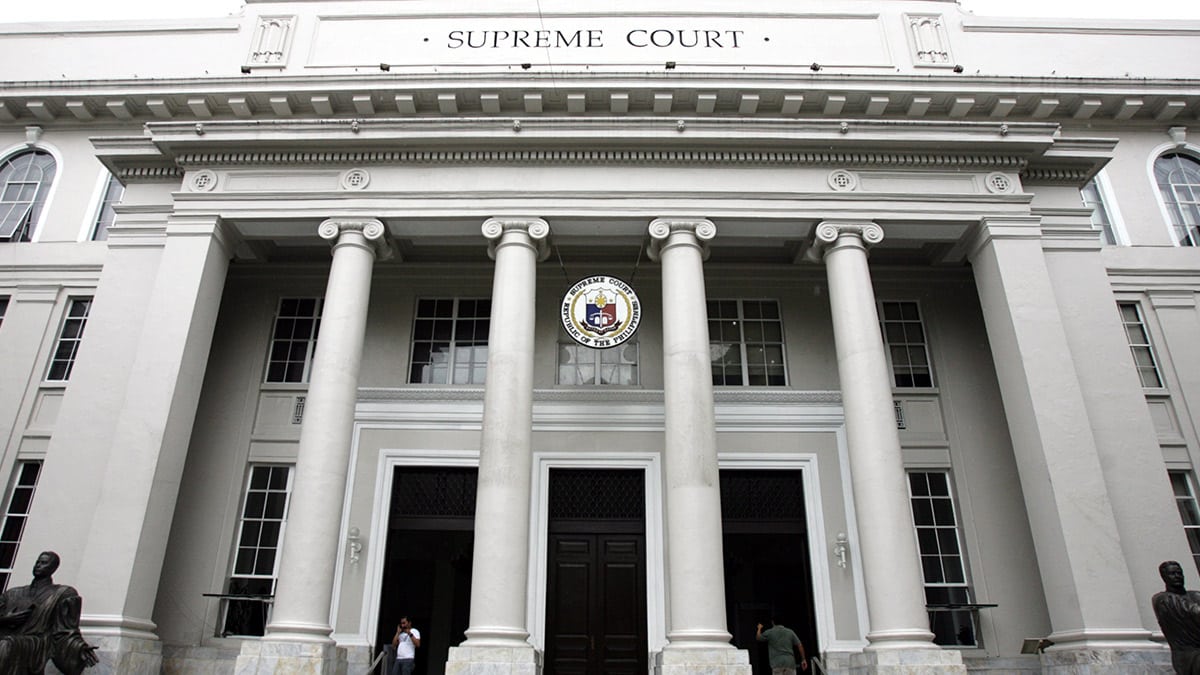SC junks oil firms’ bid vs gov’t order to detail their pricing

INQUIRER FILE PHOTO
MANILA, Philippines — The Supreme Court has rejected the petition of oil companies to block the Department of Energy (DOE) from implementing its 2019 directive requiring them to “unbundle” or disclose detailed price adjustments, along with explanations and supporting documents.
“While it may indeed be difficult or tedious for oil companies, surely, there is a way for them to compute and determine the required information based on the existing data or formula available to them,” the high court’s First Division said in its ruling on GR. No. 266310, promulgated on July 30 but made public only on Tuesday.
In the 24-page decision by Associate Justice Ramon Hernando, the high tribunal found it “hard to believe” that oil prices were arbitrarily set without any basis.
“Verily, there is a systematic calculation or process on how they set their prices, and it is such information that the DOE needs to collect in order for it to accomplish its mandate under Republic Act No. 8479,” it said.
Oil industry deregulation
The case stemmed from the petition for declaratory relief with the application for a temporary restraining order and writ of preliminary injunction filed by the industry association Philippine Institute of Petroleum Inc., Isla LPG Corp. PTT Philippines Corp., and Total Philippines Corp. against the DOE before the Makati Regional Trial Court (RTC) in June 2019.
Article continues after this advertisementThey claimed that the DOE’s Circular No. DC2019-05-0008, or the Revised Guidelines for Monitoring Petroleum Product Prices, violated their rights and conflicted with RA 8479, the Downstream Oil Industry Deregulation Act of 1998.
Article continues after this advertisementThe DOE’s circular required oil companies to submit a detailed report to its Oil Industry Management Bureau, including a breakdown of the computation, explanations, and supporting documents for the unbundled items that make up the oil company’s price.
Under the directive, oil firms must unbundle their fuel cost with the following details: international content such as import cost, freight cost, insurance and foreign exchange rate; taxes and duties such as excise and value-added taxes, duties and other import charges; biofuel cost, and oil company margins.
Details on port charges, refining cost, storage cost, handling cost, marketing costs, transshipment cost, other cost, oil company profit margin and total oil company price are also required to be turned over to the agency.
The petitioners argued that several provisions of the circular were “forms of price control,” imposed “impossible requirements on oil companies,” not in support of RA 8479, and affected their right to a “truly competitive market, and their right against disclosure of their trade secrets and/or privileged or confidential information.”
No ‘irreparable injury’
On June 28, 2019, the Makati RTC granted the oil companies’ TRO application and ordered the energy department not to enforce the circular for 20 days.
The local court subsequently issued a resolution granting the petitioners’ prayer for a preliminary injunction, prohibiting the implementation of the circular until the main petition has been decided.
Aggrieved, the DOE filed a petition for certiorari before the Court of Appeals, which partly granted on Oct. 3, 2022, the department’s plea by overturning the writ of preliminary injunction.
However, the appellate court retained the nondismissal of the main case.
In ultimately denying the oil companies’ petition, the Supreme Court ruled that they had “no clear and unmistakable right” against the implementation of the DOE circular, saying that since they had no legal right to begin with, the petitioners could not claim irreparable injury.
“This Court does not dispute nor question the policy behind the full deregulation of the downstream oil industry … Be that as it may, it does not mean that the deregulation of the downstream oil industry is left without any kind of supervision at all,” it noted.
Consumers’ benefit
The Supreme Court affirmed that the DOE’s authority to gather necessary data, as directed by the energy secretary, and to mandate prior notification and submission of detailed reports, along with the power to enforce penalties, is rooted from RA 8479.
“Thus, the DOE is well within its authority to penalize noncompliant entities should they fail to abide by the requirements set forth in DC2019-05-0008,” the ruling said.
The high court also emphasized that under the law, the circular recognizes that some of the information collected from oil companies is confidential and cannot be disclosed to unauthorized individuals or the public.
However, if parts of that information are deemed to be of public interest, the DOE secretary is allowed, under RA 8479, to release such details to the public.
“After all, the law for the deregulation of the downstream oil industry was not created to protect these oil companies; it is, first and foremost, made for the sake and benefit of the public,” the high court said.
The DOE and oil companies affected by the circular have yet to reply to the Inquirer’s request for comment on the high tribunal’s decision.